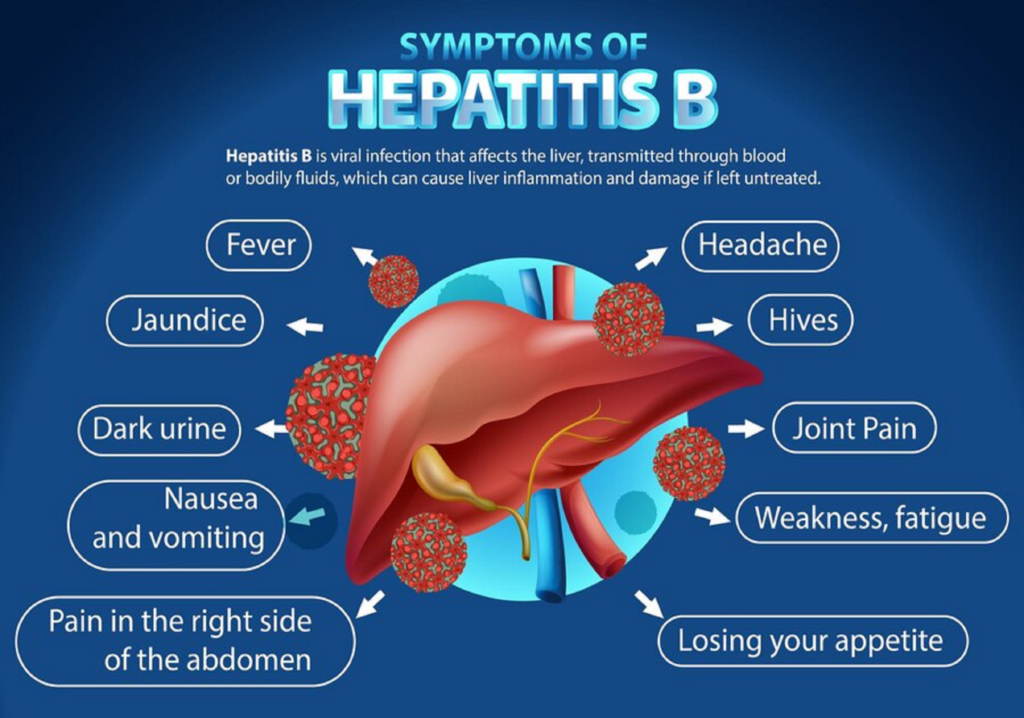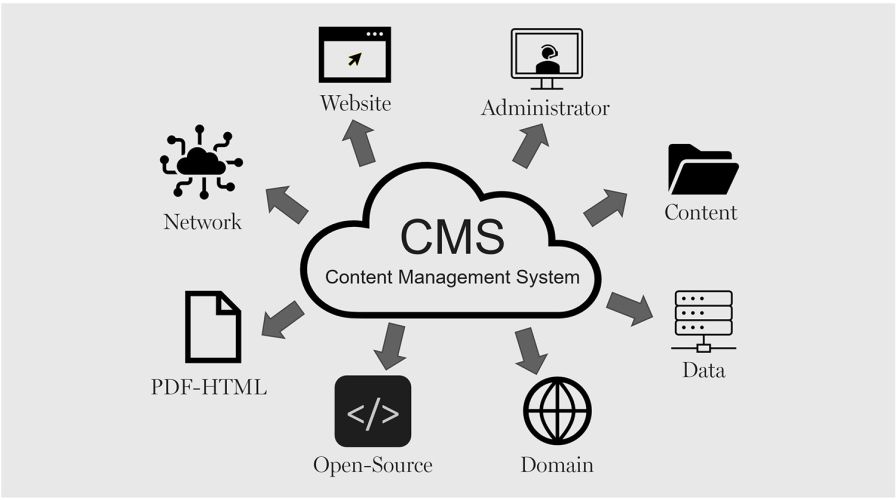Hepatitis is a liver disease caused by inflammation of the liver. This inflammation can be caused by viruses, autoimmune diseases, alcohol consumption, or drug overdose. There are five types of hepatitis, namely A, B, C, D, and E.
Hepatitis can become infectious at any level of the virus present in the bloodstream, as the disease can be spread through contact with infected bodily fluids. It is important to practice good hygiene and safe sex practices to prevent the spread of Hepatitis.
Inflammatory Causes of Hepatitis
Hepatitis refers to inflammation of the liver. Inflammatory causes of hepatitis can broadly be categorized into infectious and non-infectious causes. Infectious causes of hepatitis include viruses such as hepatitis A, B, C, D, and E, while non-infectious causes of hepatitis include alcohol abuse, autoimmune diseases, metabolic disorders, and drugs or toxins.
Infectious Causes of Hepatitis
There are five types of hepatitis viruses that can cause hepatitis, each with a different method of transmission, severity, and treatment.
Hepatitis A:
It is a virus that spreads through contaminated food and water or close contact with an infected person. Symptoms may range from mild to moderate, including yellowing of the skin and eyes, or jaundice, fatigue, nausea, and vomiting. There is a vaccine to prevent hepatitis A.
Causes of Hepatitis A
Hepatitis A is caused by the Hepatitis A virus (HAV) which is usually spread through contaminated food or water. Some common causes of Hepatitis A are:
1. Poor sanitation: Inadequate sanitation facilities and improper disposal of sewage can lead to the contamination of water sources with fecal matter, which can carry the virus.
2. Ingestion of contaminated food: Eating foods that are contaminated with the virus, such as shellfish taken from contaminated water, can result in Hepatitis A infection.
3. Close contact with an infected person: Hepatitis A can be spread through close contact with an infected person, such as being in the same household, daycare center, or sexual partner.
4. Traveling to high-risk areas: Traveling to areas with poor sanitation, inadequate hygiene practices, and limited access to safe drinking water increases the risk of acquiring Hepatitis A.
5. Injection drug use: Injection drug use, especially with shared needles, can increase the risk of acquiring Hepatitis A.
In conclusion, Hepatitis A can be caused by several factors, but the most common causes are contaminated food and water, poor sanitation, close contact with an infected person, traveling to high-risk areas, and injection drug use.
Hepatitis B:
It is spread through contact with infected blood or bodily fluids, such as sexual intercourse, sharing needles, or being born to an infected mother. Symptoms may range from mild to severe, including abdominal pain, dark urine, or jaundice. A vaccine can prevent the spread of hepatitis B.

Causes of Hepatitis B
Hepatitis B is a viral infection caused by the Hepatitis B Virus (HBV). It is transmitted through contact with the blood, semen, vaginal fluids, or other bodily fluids of an infected person. Here are some common causes of Hepatitis B:
1. Unprotected sex with an infected person: Hepatitis B can be transmitted through sexual contact with an infected person. This risk is greater if you have multiple sex partners or if you have sex with someone who has a sexually transmitted infection.
2. Sharing of needles: Hepatitis B can spread through the sharing of needles used for injecting drugs or steroids. This is because the virus can be present in the blood of an infected person and can survive outside the body for up to seven days.
3. Mother to child transmission: Hepatitis B can be transmitted from an infected mother to her baby during childbirth. This is more common in regions where Hepatitis B is endemic, such as Asia and Africa.
4. Close contact with an infected person: Hepatitis B can spread through close contact with an infected person, such as living in the same household or working in the healthcare industry.
Overall, Hepatitis B is a preventable infection that can be avoided by practicing good hygiene habits, using protection during sex, avoiding the sharing of needles, and getting vaccinated.
Hepatitis C:
It is primarily spread through contact with infected blood, usually due to sharing needles, having unprotected sex, or being exposed to contaminated equipment during surgery.
Symptoms may include fatigue, jaundice, or abdominal pain. Treatment options are available to cure hepatitis C.
Causes of Hepatitis C
Hepatitis C is caused by the hepatitis C virus (HCV), which is a blood-borne virus. Some of the common causes of Hepatitis C are:
1. Injection drug use: Sharing needles or other equipment to inject drugs can lead to the spread of HCV through blood contamination.
2. Blood transfusion and organ transplantation before 1992: Blood transfusions or organ transplants before 1992 couldn’t be screened for HCV, so people receiving these procedures may have been infected with the virus.- Occupational exposure: Healthcare workers and first responders can be exposed to the virus through contact with infected blood.
3. Birth to an infected mother: Infants born to mothers with HCV are at risk of contracting the virus during delivery.
4 Unprotected sex: Although the risk of contracting HCV through sexual contact is considered low, it’s still possible to get the virus through unprotected sex.
It’s important to note that Hepatitis C can’t be transmitted through casual contact, such as hugging, kissing, or sharing utensils or food with an infected person.
Hepatitis D:
Hepatitis D occurs only in those who are already infected with hepatitis B. It can worsen the symptoms of hepatitis B and increase the risk of liver damage.
Causes of Hepatitis D
Hepatitis D, also known as Delta hepatitis, is caused by the Hepatitis Delta Virus (HDV). The virus is found in the blood of infected individuals and is transmitted through direct contact with infected blood. The following are the main causes of hepatitis D:
1. Co-infection with HBV: HDV can only infect individuals who are already infected with the Hepatitis B Virus (HBV). When a person is co-infected with HDV and HBV, it can lead to severe liver damage and even liver failure.
2. Super-infection: HDV can also infect individuals who have chronic hepatitis B. This is known as a super-infection, and it can cause a more severe form of hepatitis compared to HBV infection alone.
3. Sharing needles: Sharing of needles and other drug injection equipment can also lead to HDV transmission.
4. Medical procedures: The use of improperly sterilized medical instruments during invasive medical procedures such as tattooing and body piercing can increase the risk of HDV transmission.
5. Mother-to-child transmission: Infants born to mothers infected with HDV can also become infected during childbirth.
In conclusion, HDV infection can occur through various means, and it is essential to take precautions to prevent infection. Individuals should ensure that they practice safe sex, avoid sharing needles and other drug injection equipment, and get vaccinated against Hepatitis B to reduce the risk of HDV infection.
Hepatitis E:
It is primarily spread through contaminated water or food. It is most prevalent in underdeveloped countries and can spread through fecal-oral transmission. Symptoms are similar to those of hepatitis A and are usually mild. There is no effective vaccine for hepatitis E.
Causes of Hepatitis E
Hepatitis E is a viral infection that causes liver inflammation. The virus responsible for the disease is known as hepatitis E virus (HEV).
The primary cause of Hepatitis E is the consumption of contaminated food or water, particularly in areas where poor sanitation and hygiene practices are prevalent. The virus is found in the fecal matter of infected individuals, and when it contaminates food or water, it can cause infection in those who consume it.
Additionally, Hepatitis E can also be spread through direct contact with an infected person’s bodily fluids, such as blood, semen, or other bodily secretions. This transmission mode is less common than the fecal-oral route, and it is possible for the virus to be transmitted from a pregnant woman to her fetus.
People traveling to regions where HEV is prevalent should take precautions by ensuring they only consume clean water, avoid eating raw or under-cooked meat, and practice good personal hygiene. Individuals experiencing symptoms of the infection should consult with their healthcare provider for a proper diagnosis and treatment plan.
Non-Infectious Causes of Hepatitis
Non-infectious causes of hepatitis include:
- Alcohol Consumption: Heavy alcohol consumption can cause hepatitis or aggravate existing hepatitis.
- Autoimmune Diseases: Autoimmune hepatitis, a condition in which the immune system attacks the liver, can cause hepatitis.
- Metabolic Disorders: Metabolic disorders that affect the liver, such as Wilson’s disease or hemochromatosis, can cause hepatitis.
- Drugs or Toxins: Long-term medication use or exposure to toxins such as pesticides or industrial chemicals can cause hepatitis.
Symptoms of Hepatitis
The most common symptoms of hepatitis include:
- Fatigue
- Nausea and vomiting
- Abdominal pain
- Loss of appetite
- Jaundice (yellowing of the skin and eyes)
- Dark urine
- Pale-colored stool
Diagnosing Hepatitis
Hepatitis is diagnosed through various diagnostic tests. These tests include blood tests that detect the presence of antibodies or viral antigens, as well as imaging tests like ultrasounds or CT scans which examine the liver for damage or enlargement. A liver biopsy may also be conducted to analyze a small sample of the liver tissue for inflammation or scarring.
In some cases, a healthcare provider may conduct additional tests such as viral load tests and genotype in order to correctly identify the specific type of Hepatitis virus that is present in the patient.
It is important to seek medical attention from a healthcare provider if you believe you may have Hepatitis or have been exposed to the virus. Early detection and treatment play a critical role in improving prognosis and reducing the risk of complications.
Chronic Effects of Hepatitis
If left untreated, hepatitis can lead to chronic liver disease, cirrhosis, and liver cancer. Chronic hepatitis B and C may not show symptoms until the liver damage is significant.
Treatment for Hepatitis
Treatment for hepatitis depends on the type and severity of the disease. The goal of treatment is to prevent long-term liver damage and alleviate the symptoms.
Hepatitis A: Most people recover from Hepatitis A without treatment. However, in severe cases, hospitalization may be necessary.
Hepatitis B: Treatment for chronic Hepatitis B may include antiviral medication.
Hepatitis C: Treatment for Hepatitis C may include antiviral medication, and in some cases, a liver transplant is required.
Management of Hepatitis
Prevention is key to managing hepatitis. The following measures can help prevent hepatitis:
1. Practice safe sex
2. Avoid sharing needles or syringes
3. Get vaccinated against hepatitis A and B
4. Practice good hygiene such as washing hands frequently
5. Do not share personal items such as razors or toothbrushes.
Maintaining a good Hygiene and Preventing Hepatitis infection
To maintain good hygiene and prevent being infected with Hepatitis, it is important to:
1. Wash hands frequently with soap and water, especially before eating meals and after visiting the washroom.
2. Avoid sharing personal items like razors, toothbrushes, and nail clippers that may come into contact with infected blood.
3. Practice safe sex by using condoms and getting vaccinated against Hepatitis B, especially if you are sexually active with multiple partners.
4. Cook food properly and avoid consuming raw or under-cooked seafood or meat.
5. Ensure safe injection practices, such as never reusing or sharing needles or syringes that have been used by someone else.
By following these preventive measures, you can reduce the risk of being infected with Hepatitis and promote good health and hygiene.
In Summary; Hepatitis is a liver disease caused by inflammation of the liver, which can be caused by viruses, autoimmune diseases, alcohol consumption, or drug overdose. There are five types of hepatitis: A, B, C, D, and E. Hepatitis can become infectious at any level of the virus present in the bloodstream and can be spread through contact with infected bodily fluids. Hepatitis refers to inflammation of the liver and can be caused by infectious and non-infectious causes. Infectious causes include viruses such as hepatitis A, B, C, D, and E while non-infectious causes include alcohol abuse, autoimmune diseases, metabolic disorders, and drugs or toxins.
Hepatitis A is caused by the Hepatitis A virus (HAV) which is usually spread through contaminated food or water. Some common causes of Hepatitis A are poor sanitation; ingestion of contaminated food; close contact with an infected person; traveling to high-risk areas; and injection drug use.
Hepatitis B is a viral infection caused by the Hepatitis B Virus (HBV) transmitted through contact with the blood or other bodily fluids of an infected person. Common causes include unprotected sex with an infected person; sharing needles; mother-to-child transmission; and close contact with an infected person.
Hepatitis C is primarily spread through contact with infected blood due to sharing needles; having unprotected sex; or being exposed to contaminated equipment during surgery. Causes also include occupational exposure; blood transfusion and organ transplantation before 1992; birth to an infected mother; and unprotected sex.
Hepatitis D occurs only in those who are already infected with hepatitis B while
Hepatitis E is primarily spread through contaminated water or food.
Non-infectious causes of hepatitis include alcohol consumption which can cause hepatitis or aggravate existing hepatitis; autoimmune diseases such as autoimmune hepatitis where the immune system attacks the liver causing hepatitis; metabolic disorders that affect the liver such as Wilson’s disease or hemochromatosis that cause hepatitis; long-term medication use or exposure to toxins such as pesticides or industrial chemicals that cause hepatitis.
Symptoms of hepatitis include fatigue, nausea and vomiting, abdominal pain, loss of appetite, jaundice (yellowing of the skin and eyes), dark urine, pale-colored stool. If left untreated, it can lead to chronic liver disease cirrhosis and liver cancer.
Hepatitis can be diagnosed through various tests, including blood tests and imaging tests like ultrasounds or CT scans. A liver biopsy may also be conducted to analyze a small sample of the liver tissue. Additional tests such as viral load tests and genotype may be conducted to identify the specific type of Hepatitis virus present in the patient. Early detection and treatment are important in improving prognosis and reducing complications.
Hepatitis is a liver disease caused by inflammation that can be caused by viruses, autoimmune diseases, alcohol consumption, or drug overdose. Symptoms include fatigue, abdominal pain, and loss of appetite. Chronic hepatitis can lead to liver disease, cirrhosis, and liver cancer. Treatment depends on the type and severity of the disease and may include antiviral medication. Preventive measures such as practicing safe sex and getting vaccinated can also help manage hepatitis.
Treatment for hepatitis depends on the type and severity of the disease. The goal is to prevent long-term liver damage and alleviate symptoms. Prevention is key to managing hepatitis which includes practicing safe sex; avoiding sharing needles or syringes; getting vaccinated against hepatitis A & B ; practicing good hygiene such as washing hands frequently ; not sharing personal items like razors or toothbrushes ; cooking food properly ; ensuring safe injection practices such as never reusing needles used by someone else.
CONCLUSION
Hepatitis is a liver disease caused by inflammation of the liver that can be caused by viruses, autoimmune diseases, alcohol consumption, or drug overdose. hepatitis can be caused by a variety of infectious and non-infectious factors.
Understanding the causes of hepatitis can help people take steps to prevent its spread and reduce the risk of liver damage. Symptoms include fatigue, abdominal pain, and loss of appetite.
Chronic hepatitis can lead to liver disease, cirrhosis, and liver cancer. Treatment for hepatitis depends on the type and severity of the disease and may include antiviral medication. Preventive measures such as practicing safe sex and getting vaccinated can also help manage hepatitis.




